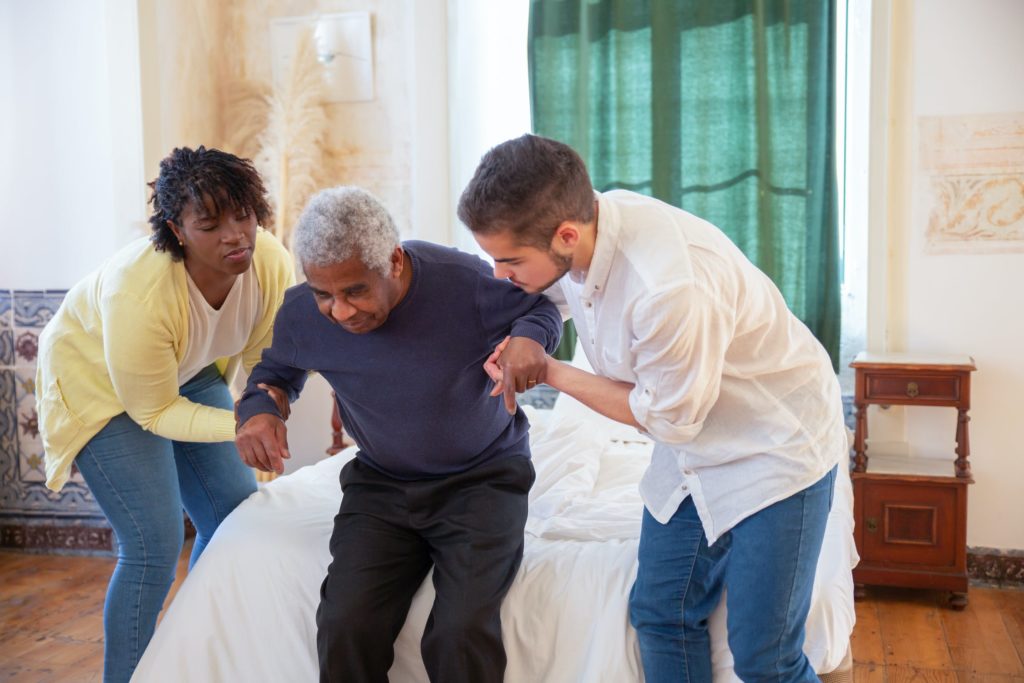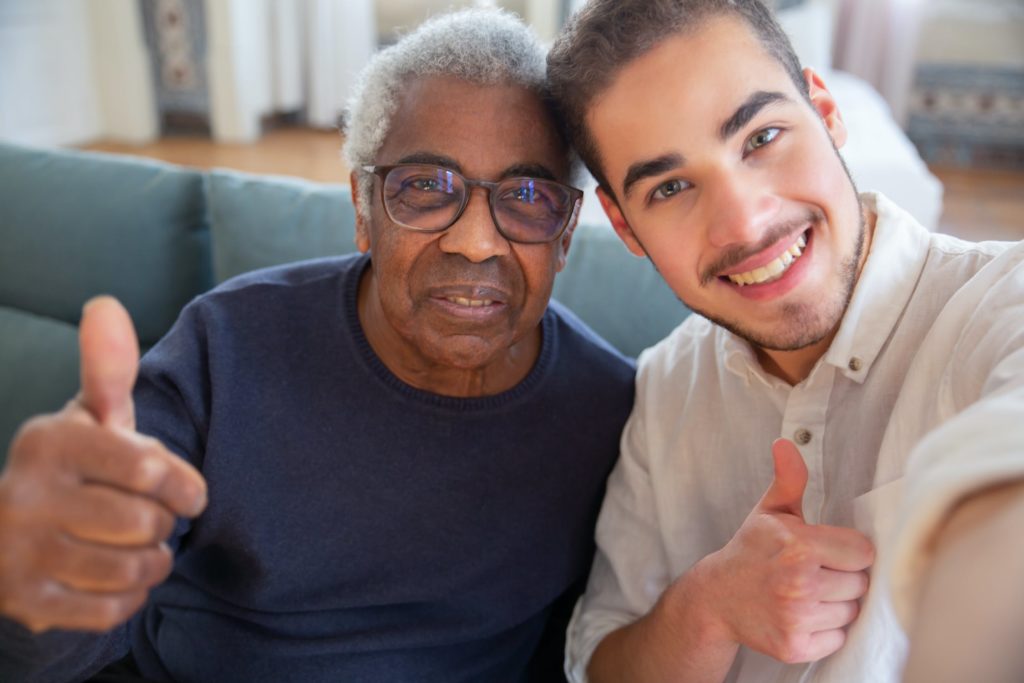Caring for a sick loved one can be a taxing experience. After all, you will have to devote much of your time to meet their needs. And providers of home health care in California say that this can lead to burnout and other issues. So, here is a handy guide to ensuring the health of family caregivers like yourself and continuing to help your loved one.

Understanding The Challenges A Family Caregiver Faces
While professional caregivers can make the work look easy, it is not the case when family members are taking on the role. They will often face various challenges that can affect not just their work but also their daily lives. Knowing these challenges will give you an idea of how to support family caregivers better.
Time Management
As we mentioned, being a family caregiver is often a 24-hour job. Those tasked with the role often have less time for themselves. Here, they might end up sacrificing things they like to do to0 accomplish their responsibilities. There is also the difficulty of balancing work schedules if they have one.
Stress
The stress that a family caregiver experiences doing their responsibility are both physical and emotional. For instance, assisting a loved one with mobility issues requires plenty of physical effort. On the other hand, the emotional stress can be even greater, especially when dealing with conditions like dementia and Alzheimers’s
That stress can take a lot of toll on the caregiver’s health. According to statistics, 22% of family caregivers reported their health was in decline due to the rigors of the job. That can significantly affect their ability to perform the role.
A Lack Of Privacy
Taking the role of a caregiver can often mean that you have to be with your ward’s side most of the time. That can make it harder for them to set boundaries. The lack of privacy can make them feel like they are losing their individuality.
Financial Strain
Being a family caregiver is often unpaid work. Because of that, those assigned to it might struggle with their finances. That is especially the case when caring for a family member means sacrificing work opportunities. That added financial strain can impact their daily lives.
The Signs Of Caregiver Burnout
With all the above challenges, family caregivers can find themselves feeling burned out. This burnout can cause them to be detached from their wards, leading to strained relationships. Knowing the signs of this situation can help you remedy it early and guide the caregiver to recovery.
The Cause Of Caregiver Burnout
First off, we need to look at what can trigger caregiver burnout. Aside from the above, there are specific causes that can cause the situation to happen. Note that triggers can vary from person to person.
- Role Confusion: When suddenly thrust into the role of a caregiver, a family member might have a hard time determining what they have to do exactly.
- Unrealistic expectations: People can have a high expectation of what they can do for a loved one’s health> This can lead to unrealistic expectations when dealing with progressive diseases.
- Unreasonable demands: Family members and the patient might set unrealistic demands for the caregiver to fulfill.
Note that you might not realize these triggers until too late and you already feel burned out. As such, you need to look into the symptoms instead.
The Symptoms
Like the triggers, the symptoms of caregiver burnout can vary from person to person. However, some of the common ones you can notice include:
- Lack of energy:
- Fatigue
- Sleep problems
- Changes in eating habits
- Overreaction to even minor nuisances
- Trouble concentrating
- Feelings of helplessness, regret, and other negative emotions
- Anxiety
- Mood Swings
- Difficulty dealing with everyday happenings
At its more extreme, burnout can lead the caregiver to have negative feelings towards their ward. These can include thoughts of wanting to harm their loved ones or themselves. Because of this, they become more of a burden than a help. That can also affect their relationship with other members of your family.

Encouraging Self-Care In Family Caregivers
The first thing that family caregivers need to do is care for themselves. That might seem a tough call if you take on the responsibility of caring for your loved ones. Luckily, there are things you can do to get into that mindset.
Overcoming Personal Barriers
For some, being a family caregiver is something of a selfless act. After all, you are helping a loved one. However, it is still important to set certain limits to ensure you take care of yourself. Here, you need to identify barriers that prevent you from setting these limitations. Some of the questions you should ask yourself include:
- Do you think you are being selfish if you put your needs first?
- Are you frightened when thinking about your needs? Where is that fear coming from?
- Do you have trouble asking for what you need?
- Do you feel inadequate if you ask for help?
Your answer to these questions will give you an idea of the barriers you face when it comes to self-care. Once you have identified these, you can start working towards overcoming them. It would be best to bring your family and your ward to help you in this effort.
Setting Realistic Goals
Another essential part of encouraging self-care here is setting the right goals. One way to do this is to think about what you want to accomplish within the next three to six months. Here are some of the goals you might want to have.
- Take a break from caregiving
- Engage in activities that would be healthy for you
- Get help in doing some caregiving tasks.
Once you have listed your goals, you can think about the various actionable steps to accomplish this. For instance, you can plan short breaks once a week. You would also want to use this opportunity to schedule a medical checkup for your health.
Communicating With Your Loved Ones
You also need to communicate your thoughts to your ward and other family members. With that, they will be able to understand what you are going through. Talking with your ward, in particular, about the matter is a must. You don’t want them to feel as if they are responsible for your situation. That can affect their health as well.
For that, you need to make your messages clear. Here, you want to go for “I” messages, like “I am feeling exhausted.” instead of “You make me exhausted.” This lets you express your feelings without blaming others.

Getting The Help Of The Best Home Health Care In California
With all of that, you want the help of the right provider in caring for your loved one. We at Amavi offer extensive support for family caregivers. Our team has a daycare service that will let you take that much-needed break. Additionally, we offer custodial services for related home management needs. Get the best home health care in California to lend a hand and get back on track with your life.
